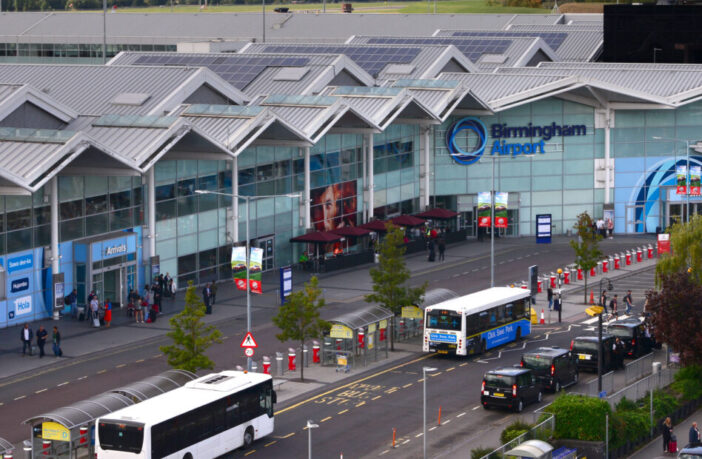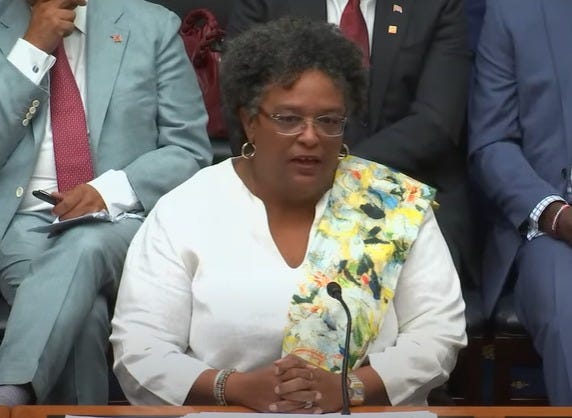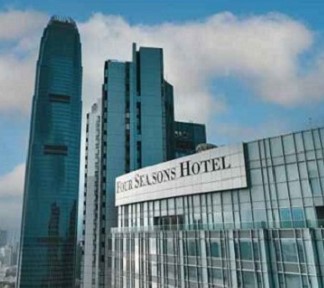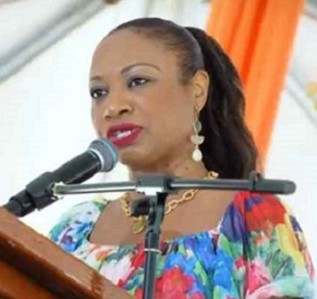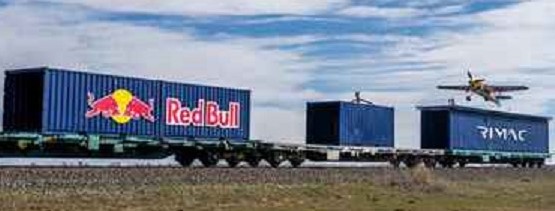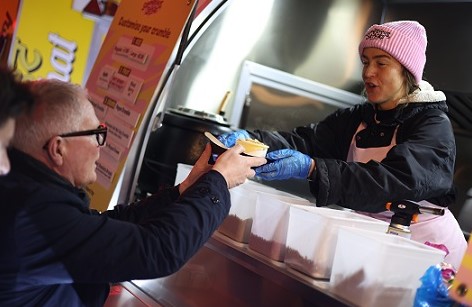Almost a year after her rip-roaring speech to the international community at COP26 in Glasgow on the need for more climate-financing to protect vulnerable states like those in the Caribbean, Barbados’ Prime Minister Mia Mottley was in the global spotlight once again, this time calling out what she believes are onerous financial rules being imposed by the U.S. and other industrialized nations that make Caribbean markets uncompetitive.
Her appearance before the House Committee on Financial Services discussing the impact of financial de-risking in the Caribbean was the first time in nearly 40 years that a prime minister had addressed the U.S. Congress.
Prime Minister Mottley told the audience of U.S. lawmakers that the placement of Caribbean countries, like Barbados, Jamaica and The Cayman Islands, on a global grey list, has raised their perception of risk. She said this “unjust listing” by the Financial Action Task Force (FATF), in which the U.S. Treasury participates, has made them out to be jurisdictions plagued with financial crimes like money laundering and terrorism financing, while countries with much greater levels of suspicious activities aren’t targeted.
As an example, she highlighted the criticism faced by Ugland House in the Cayman Islands, “which houses over 12,000 companies.”
“The impression given is that this could be a tax scam without acknowledging that in the U.S. state of Delaware, there is a similar building that houses over 300,000 companies, including some of the largest companies in the world,” she stated in her prepared remarks.
Ms. Mottley explained that the designation from FATF and other groups like the Organisation for Economic Cooperation and Development (OECD), has led to correspondent banks performing enhanced due diligence, which has raised compliance costs. As a result, most CARICOM member states have lost more than 30% of their relationships with correspondent banks, which process international payments in order to facilitate trade.
“This can’t be fair,” she said. “We do not make enough clothes; we do not produce our own food; we do not produce our own equipment, and therefore, unless we are able to trade with the rest of the world, we are at risk of becoming financial pariahs.”


